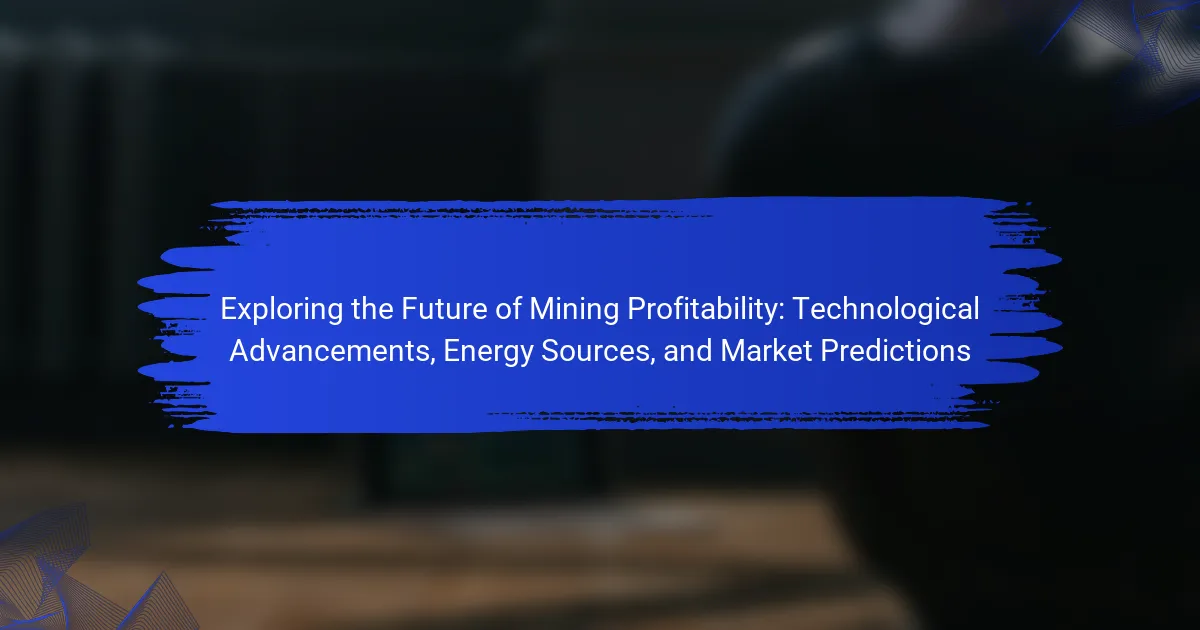The article focuses on mining profitability, which is expected to be significantly influenced by technological advancements, energy efficiency, and market dynamics. Key factors include the implementation of automation and artificial intelligence, projected to lower operational costs by up to 15%, and the increasing adoption of renewable energy sources, potentially reducing energy expenses by 30%. The […]

Profitability Factors in Mining Cryptocurrency: Initial Investment, Operational Costs, and Potential Returns
The article examines the key profitability factors in mining cryptocurrency, focusing on initial investment, operational costs, and potential returns. Initial investment encompasses hardware, software, and setup costs, with high-quality mining rigs priced between $1,000 and $10,000. Operational costs, primarily driven by electricity prices, cooling, and maintenance, significantly influence profitability. The potential returns vary based on […]

The Impact of Market Conditions on Mining Profitability: Price Fluctuations, Supply Chain Issues, and Regulatory Changes
Mining profitability is significantly influenced by key market conditions, including commodity prices, operational costs, and the regulatory environment. Fluctuations in commodity prices directly affect revenue, with higher prices typically leading to increased profitability for mining companies. Operational costs, which encompass labor, equipment, and energy expenses, can vary significantly based on location and external market factors. […]
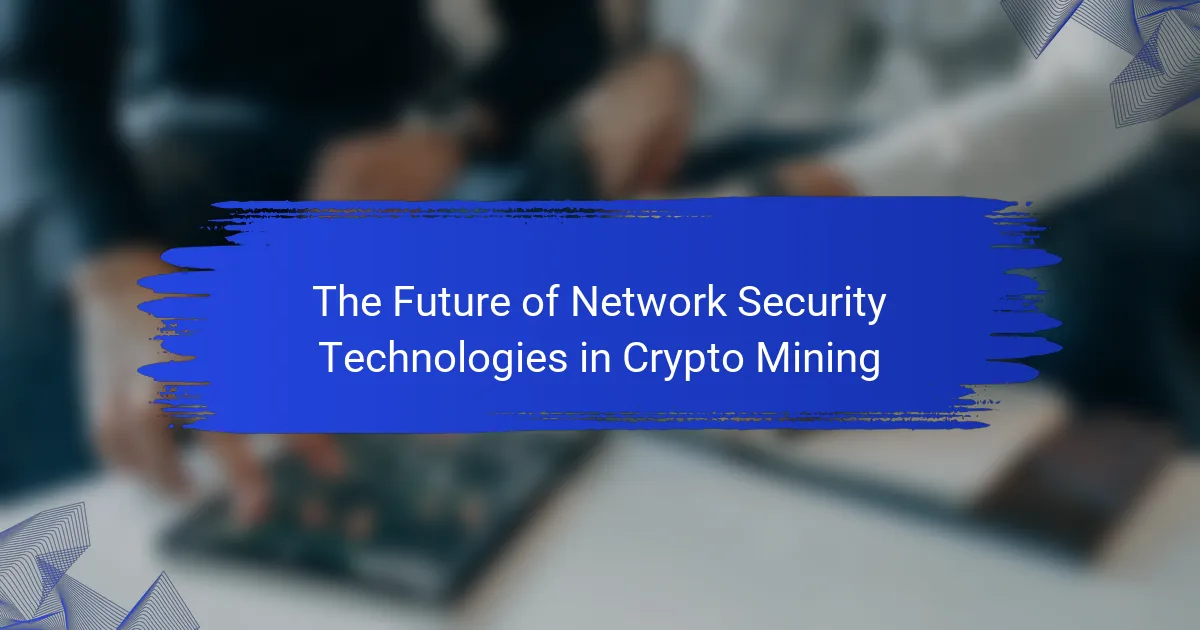
The Future of Network Security Technologies in Crypto Mining
Network security technologies are critical for protecting crypto mining operations from cyber threats. Key components include firewalls, intrusion detection systems, encryption methods, and multi-factor authentication, all of which enhance security by preventing unauthorized access and securing data transmission. Recent advancements in these technologies, such as enhanced encryption techniques and decentralized security protocols, further safeguard against […]
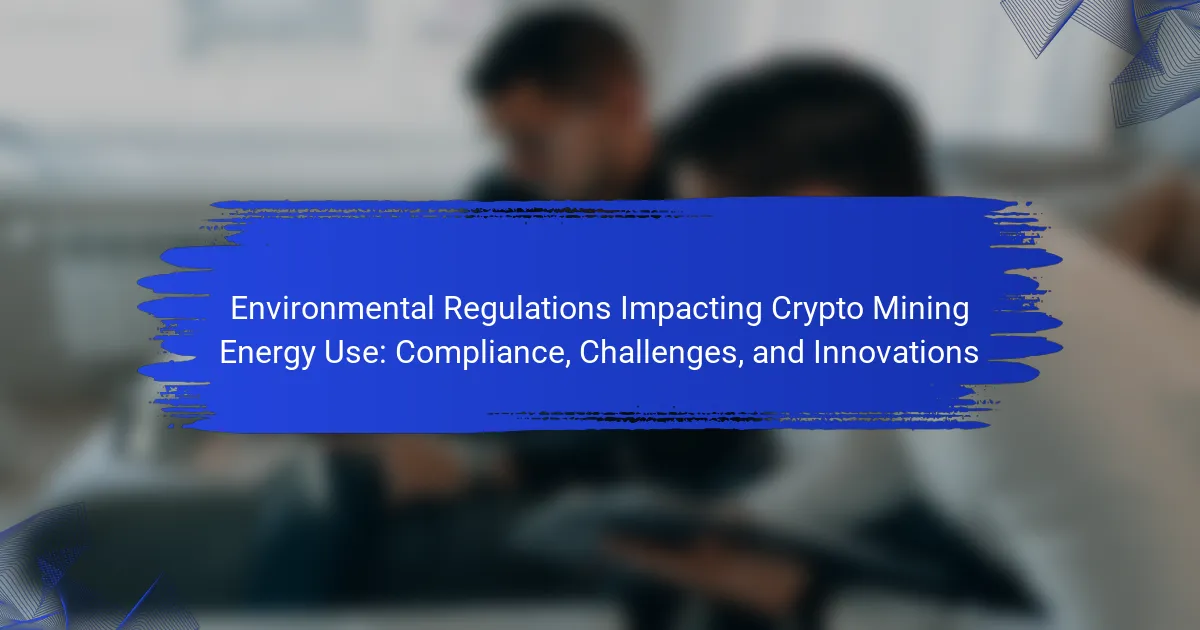
Environmental Regulations Impacting Crypto Mining Energy Use: Compliance, Challenges, and Innovations
Environmental regulations are legal frameworks aimed at managing the ecological impact of various activities, including cryptocurrency mining. These regulations are essential for reducing carbon emissions and energy consumption linked to mining operations. Compliance with environmental regulations can lead to sustainable practices within the crypto industry, as exemplified by the European Union’s proposed measures to limit […]
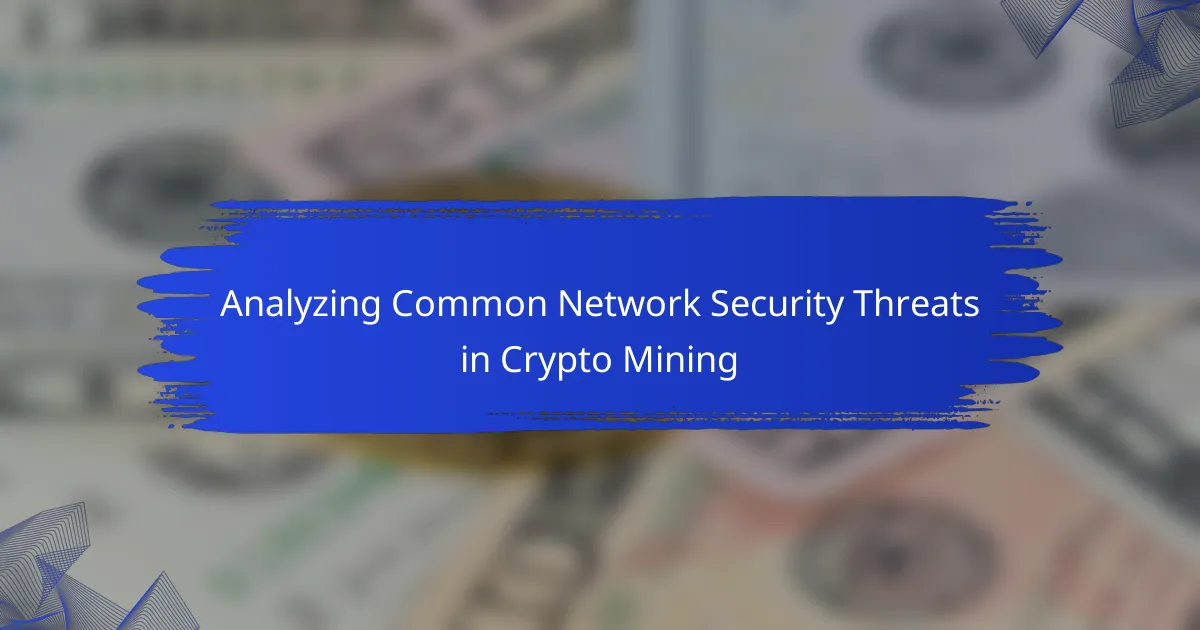
Analyzing Common Network Security Threats in Crypto Mining
The article focuses on common network security threats in crypto mining, highlighting key risks such as Distributed Denial of Service (DDoS) attacks, malware, phishing attacks, and man-in-the-middle attacks. DDoS attacks can disrupt mining operations by overwhelming servers, while malware can compromise mining software, leading to financial losses. Phishing attacks target miners to steal sensitive information, […]
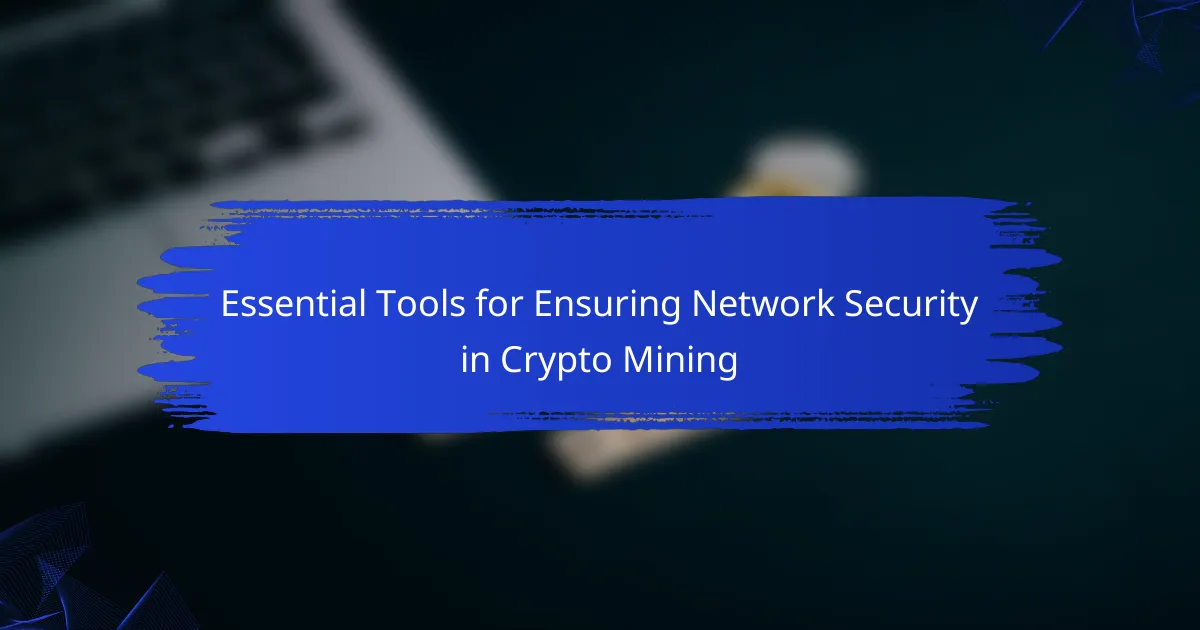
Essential Tools for Ensuring Network Security in Crypto Mining
Network security tools are critical for protecting crypto mining operations. Essential tools include firewalls, antivirus software, VPNs, and intrusion detection systems, each serving a specific purpose in safeguarding the network. Effective implementation requires selecting reliable software and hardware, using specialized mining software, and regularly updating systems to address vulnerabilities. Ongoing maintenance practices such as monitoring […]
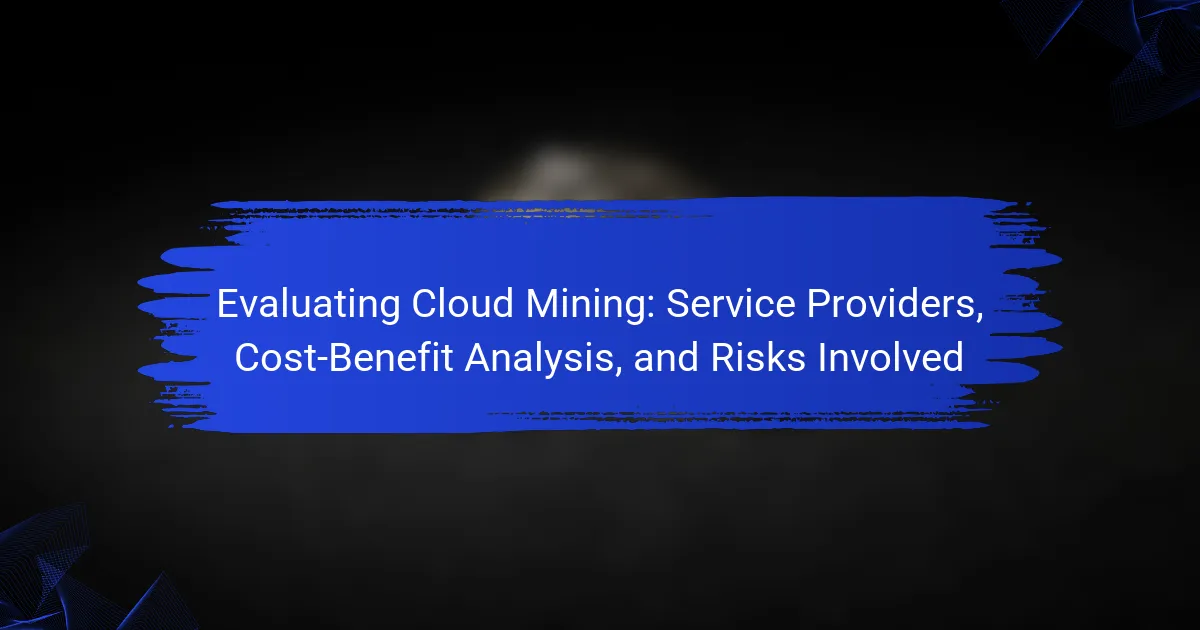
Evaluating Cloud Mining: Service Providers, Cost-Benefit Analysis, and Risks Involved
Cloud mining is a cryptocurrency mining method that leverages remote data centers, allowing users to rent mining power rather than invest in physical hardware. This article evaluates cloud mining by examining prominent service providers, such as Genesis Mining, Hashflare, and NiceHash, which are recognized for their reliability and user support. Additionally, it outlines a structured […]
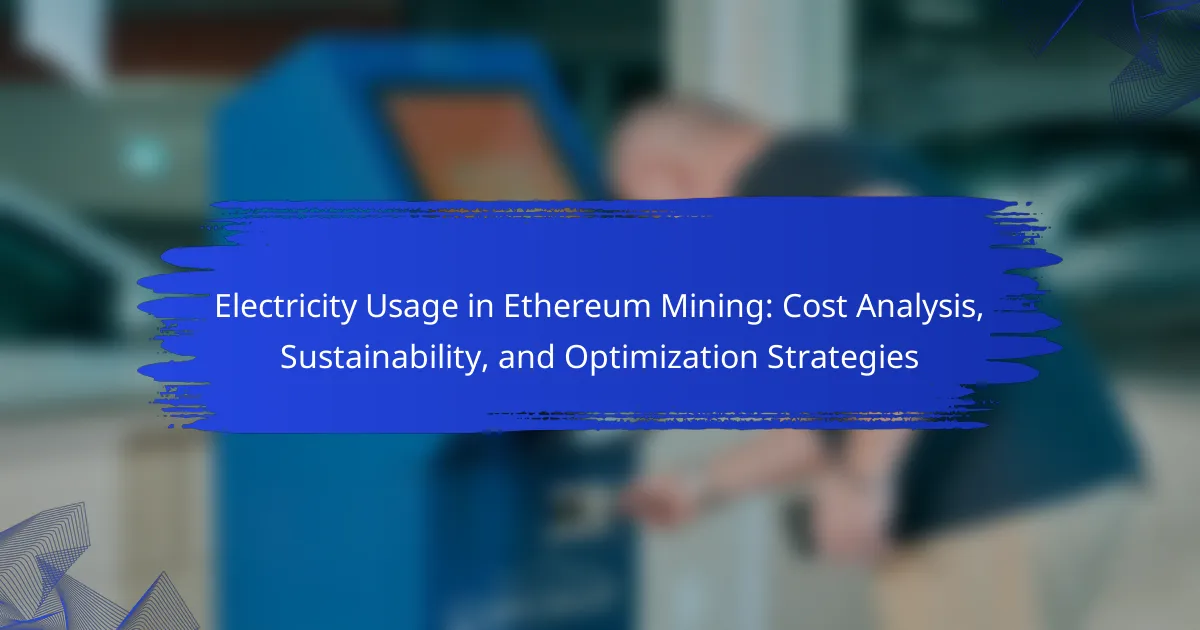
Electricity Usage in Ethereum Mining: Cost Analysis, Sustainability, and Optimization Strategies
Electricity usage in Ethereum mining refers to the electrical power consumed by mining operations that solve complex mathematical problems. This process can consume up to 100 terawatt-hours (TWh) annually, raising concerns about environmental impact and sustainability, particularly due to high carbon emissions and reliance on fossil fuels. Optimization strategies such as using energy-efficient hardware, improving […]
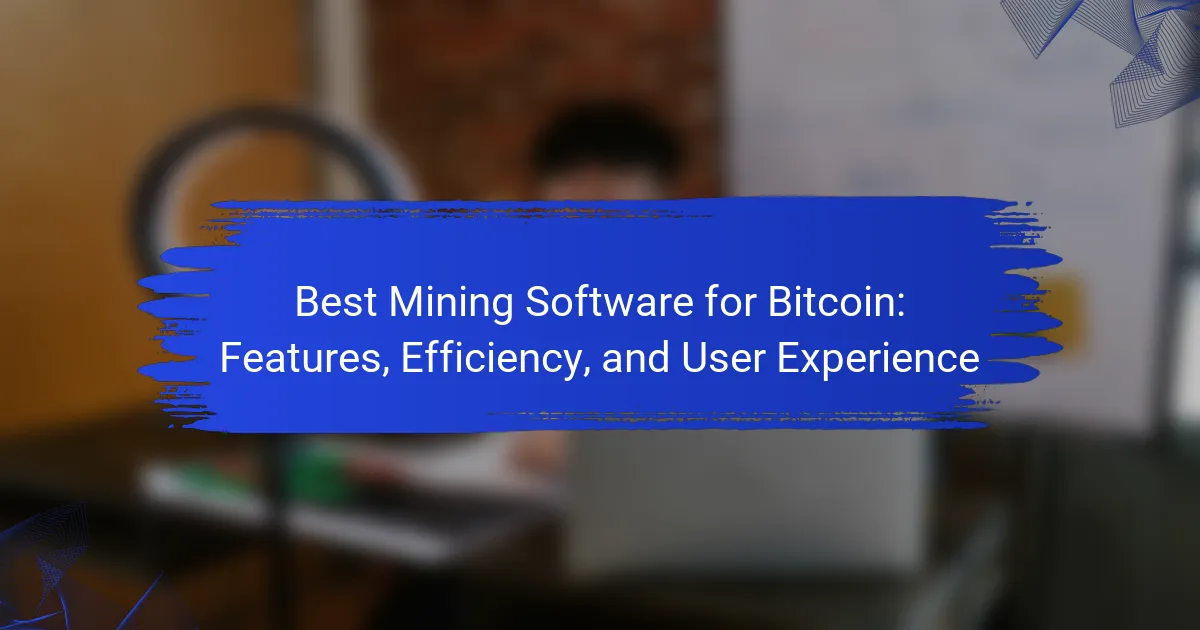
Best Mining Software for Bitcoin: Features, Efficiency, and User Experience
The primary entity discussed is Bitcoin mining software, with a focus on CGMiner, which is recognized for its efficiency, user-friendly interface, and compatibility with various operating systems and hardware types. The article provides an overview of popular mining software options, including CGMiner, BFGMiner, and EasyMiner, highlighting their distinct features, efficiency levels, and user experiences. It […]
